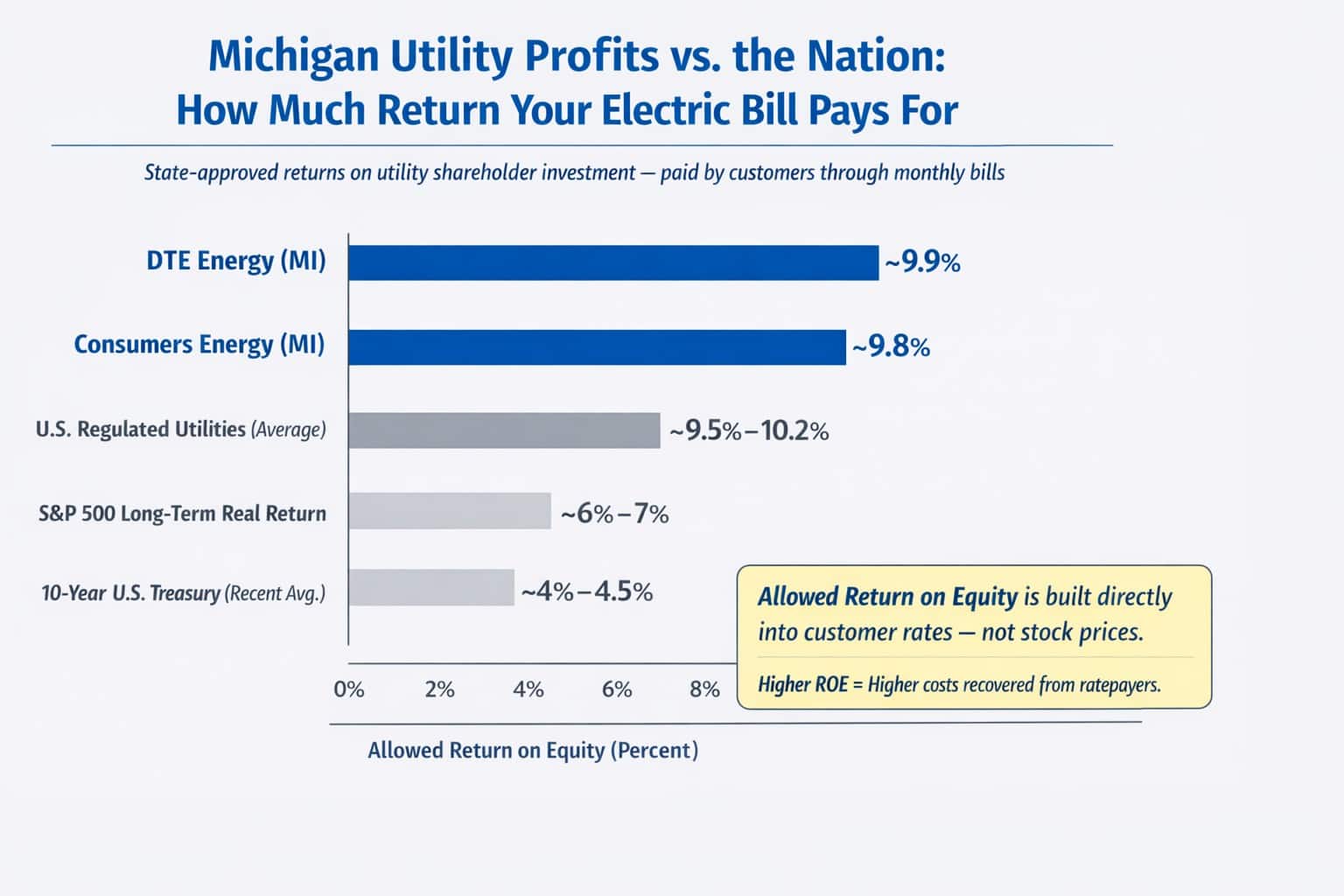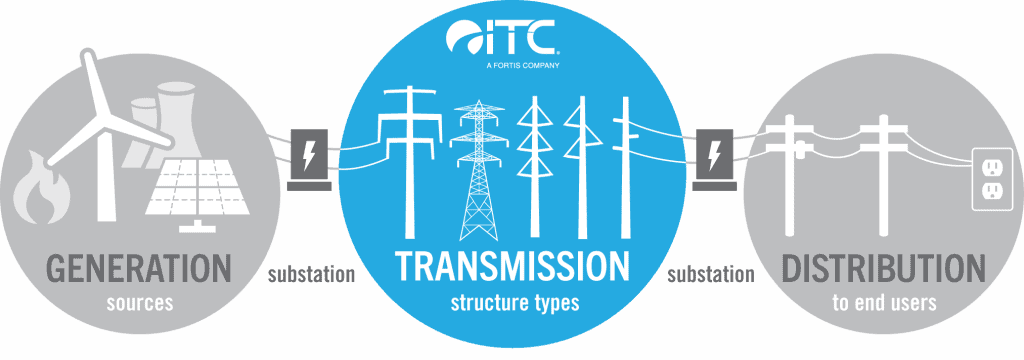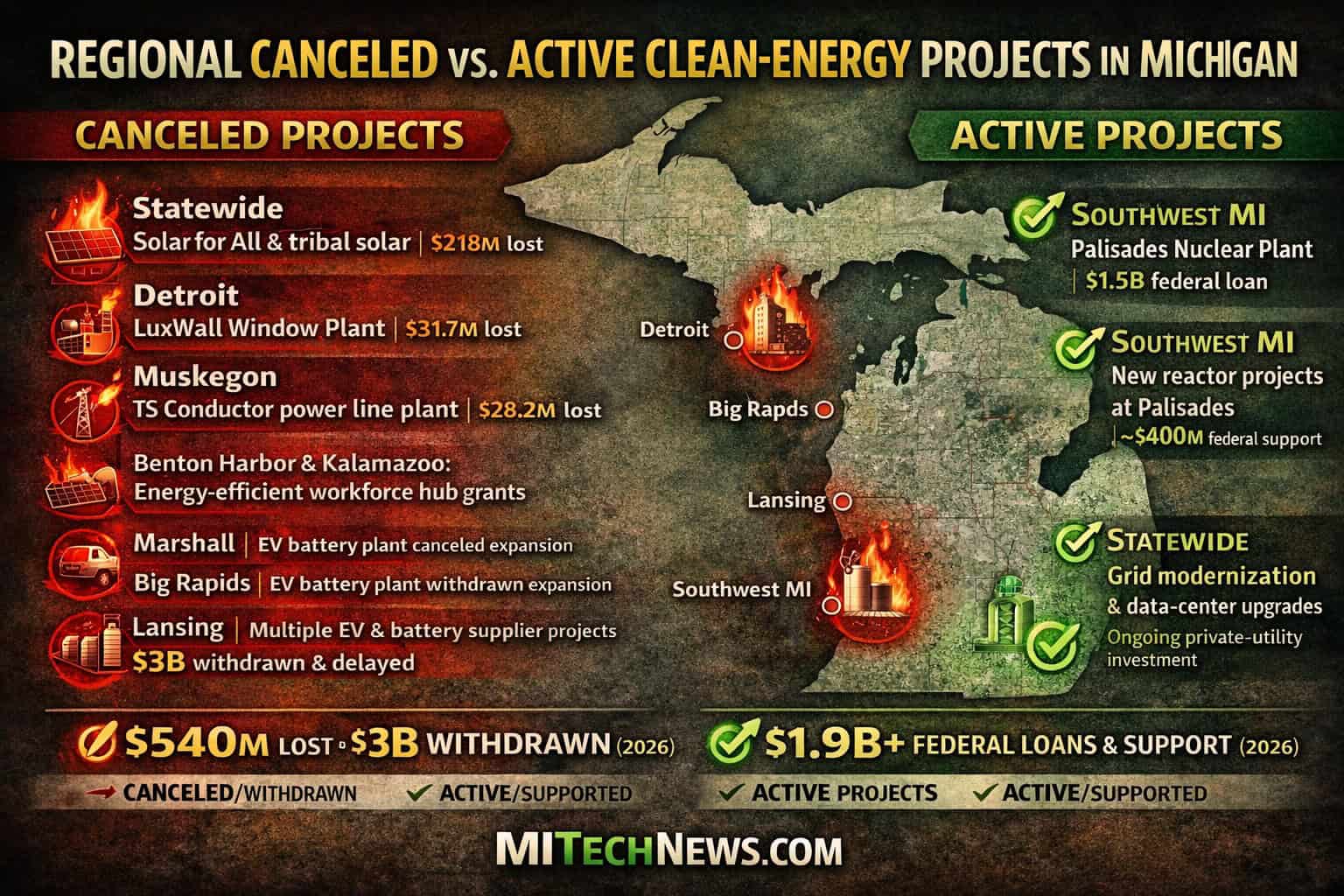LANSING —Michigan-backed clean hydrogen hub project, the Midwest Alliance for Clean Hydrogen has received $22.2 million from the Department of Energy from the Biden-Harris administration’s Bipartisan Infrastructure Law and support from members of the Michigan congressional delegation.
The funding will advance the next phase of planning and development of regional supply chains for the production, distribution, and use of clean hydrogen for public transit, trucking, and industrial use. MachH2 is anticipated to create 12,000 direct jobs and catalyze further growth and economic opportunities in the developing hydrogen sector.
The investment includes the creation of a hydrogen “Truck Stop of the Future” in Detroit, a hydrogen production facility in Ypsilanti, and the expansion of a hydrogen production and refueling center for public transit in Flint. Investments in the development of a robust clean hydrogen market, supply chain, and workforce also have a strong potential to create good-paying jobs, expand economic opportunities, promote energy independence, and improve public health outcomes. Clean hydrogen is a game changer in the global effort to address climate change and will help Michigan achieve the goals of the MI Healthy Climate Plan.
“Today, the Biden-Harris administration is investing in Michigan to support the MachH2 hydrogen hub project,” said Governor Whitmer. “Thanks to the leadership of our state legislature and congressional delegation and investments from leading, cutting-edge companies, Michigan will lead the future of clean energy and advanced manufacturing. Together, we will produce more American energy using American workers, create tens of thousands of good-paying manufacturing jobs, and bring critical supply chains home from overseas. With more strategic partnerships like this hydrogen hub, we can build a future where everyone can ‘make it’ in Michigan.”
In October 2023, Governor Whitmer announced that MachH2 was one of only seven projects selected by DOE to usher in the next generation of clean energy and clean manufacturing across the Midwest. The $22.2 million investment is for Phase 1 on MachH2, which will include planning, design, development, and community and labor engagement activities. Phase 1 is expected to last between 12 to 18 months.
“I have worked to pass new laws to help lower costs for families and invest in clean energy projects across Michigan,” said U.S. Congressman Dan Kildee. “By investing in clean energy, we are putting Michiganders to work in good-paying manufacturing jobs, including expanding hydrogen projects in Flint. I will continue to work with Vice President Harris, Governor Whitmer and Democrats to grow our economy, create jobs and lower costs for all Michiganders.”
“Clean hydrogen is one of the most promising technologies in the transition to a clean energy future. This funding for the MachH2 hydrogen hub will support Michigan’s leadership in the development and deployment of supply chains for hydrogen trucks and heavy-duty vehicles, and will invest directly in our community with a hydrogen production facility in Ypsilanti,” said U.S. Congresswoman Debbie Dingell. “I’m proud to have helped secure these funds in the Bipartisan Infrastructure Law, and will continue to work closely with Governor Whitmer and all our state and local partners to continue building on our work as a national clean energy and technology leader, while bringing thousands of good-paying jobs to our communities.”
Hydrogen Truck Stop of the Future
In cooperation with the Michigan Infrastructure Office (MIO), the Michigan Department of Environment, Great Lakes, and Energy (EGLE) is working with MachH2 to build a hydrogen “Truck Stop of the Future” in Detroit. This advanced mobility project will enable the future decarbonization of Gordie Howe International Bridge traffic and establish Michigan as the ideal location for building and testing hydrogen-powered heavy-duty vehicles. The hydrogen “Truck Stop of the Future” could represent emissions reductions of up to 8,250 tons of CO2 per year, the equivalent of growing 115,000 tree seedlings for 10 years..
“Michigan continues to be a national leader in drawing federal funding that positions our state and the entire Midwest as a hub for clean energy innovation and jobs,” said Zachary Kolodin, chief infrastructure officer and MIO director. “We are excited to advance into the next phase of MachH2 and work with our partners to chart a course forward that will strengthen our manufacturing capabilities, grow our workforce and position the Midwest as a global leader in the ongoing transition to a clean, affordable, and reliable energy sector.”
American Center for Mobility Hydrogen Production Facility
MachH2 will oversee the construction of a hydrogen production facility at the American Center for Mobility (ACM) in Ypsilanti. ACM is a national leader in exploring the mobility issues of the future and their project will provide ACM with on-site hydrogen generation, the potential for supporting advanced hydrogen R&D, and a key role within the southeast Michigan hydrogen supply chain.
“We are thrilled to collaborate with MachH2 in advancing clean transportation solutions,” said ACM President & CEO Reuben Sarkar. “Establishing on-site hydrogen production at ACM not only enhances our capabilities but also aligns with our vision of pioneering sustainable mobility technologies. This project positions us at the forefront of the hydrogen revolution, reinforcing our commitment to a cleaner, greener future for transportation.”
Expanding Hydrogen Production in Flint
The Flint Mass Transportation Authority is also working to expand its existing hydrogen production and fleet of fuel-cell buses, leading to further reductions in transportation-related emissions. The current fleet of buses has reduced Flint MTA’s consumption of diesel fuel by 99%, from three million gallons down to 30,000, clearing the air and saving taxpayers money. A national leader in hydrogen transit, Flint MTA is setting an example for other regional transit authorities as well as supporting the development of a hydrogen supply chain in Flint.
“The Mass Transportation Authority is committed to the expansion of its zero-emission hydrogen fleet, said MTA CEO Ed Benning. “We look forward to expanding our partnership with the MachH2 initiative, which will provide our community with healthier, more sustainable public transportation and further establish Flint as a leader in environmental stewardship and innovation.”
Michigan Leads on Clean Energy
A new report from Climate Power shows Michigan continues to be a national leader in clean energy and electric vehicle manufacturing. Bolstered by President Biden’s Inflation Reduction Act (IRA), Michigan is No. 1 in the nation for IRA projects, which have resulted in more than $26 billion in new investments across the state. This funding, in tandem with Governor Whitmer’s clean energy legislative package and bipartisan economic development tools, is growing the middle class, creating good-paying, in-demand manufacturing jobs, bringing supply chains home, and lowering energy costs for families.
“Michigan is poised to lead the way in the hydrogen revolution. By leveraging our unique economic strengths and natural resources, we can build a thriving hydrogen economy right here in the Midwest,” said Phil Roos, director of the Michigan Department of Environment, Great Lakes and Energy. “MachH2 is good for our planet, as we reduce emissions and embrace sustainability. It’s good for our economy, as we create new industries and opportunities. And it’s good for our workforce, as we equip Michiganders with the skills and jobs of tomorrow.”
To learn more about the Midwest Alliance for Clean Hydrogen, please visit https://machh2.com. To learn more about hydrogen projects underway in Michigan, please visit Michigan Leads on Hydrogen.






